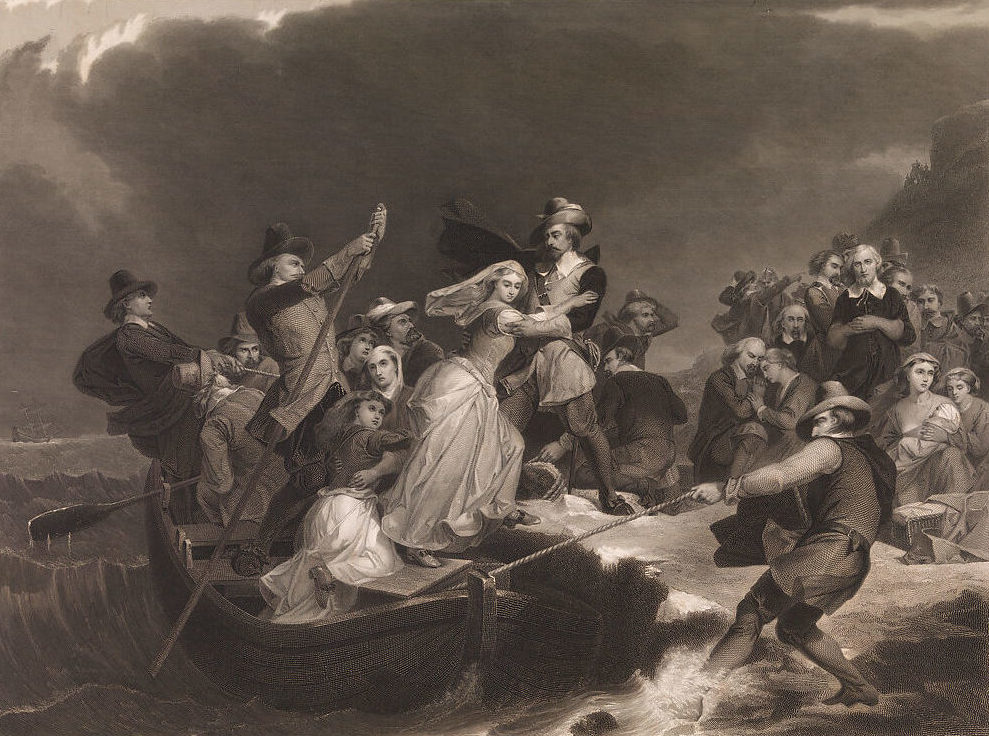In 1621, in the infancy of English settlement on this fair continent, 90 Wampanoags joined 53 English to celebrate a successful harvest. This was the first Thanksgiving. However, it was not an easy journey to get to this festival of a bountiful harvest. The 53 survivors of the Mayflower had endured a cruel and unforgiving New England winter only by the hardest — and had relied on the goodwill of the Wampanoag tribe as well as the last Patuxet to last the winter and put a good crop in during the spring. The industrious Pilgrims survived their first winter in their new homeland by the charity of the natives and the hard work of their own hands.
The grateful Pilgrims always remembered the charity the Wampanoags had shown to them, passing this story of charity down the generations for more than four centuries, from the 1600s to the modern era. Even though relations between the natives and the English settlers soured soon thereafter, this important story never faltered; it was never embellished by the English to create some notion of English exceptionalism or to emphasize so-called indigenous savagery, but stood as a reminder of something else. A reminder that relations did not have to devolve into war, that bloodshed was not the answer to the clash between these two children of God. The first Thanksgiving reminds us of how it could have been between the Native Americans and the arriving Europeans. If the Europeans had stood by their promises and the values of Christendom, and if the natives had not tried to leverage the Europeans, like the Sword of Damocles, over their enemies, we might have a much different history — a history informed by the values imparted between the Wampanoag and the Pilgrims at that first Thanksgiving.
Even though relations between the Tribes and the English reached a high-water mark at the first Thanksgiving, we must not allow that event to exist in a vacuum. We must not remember it as a historical event or even as an exception; we must allow it to become a living cultural moment in the history of our great nation. We, the American people, must remember the first Thanksgiving as the birth of American values. We, the American people, are inheritors of the natives’ traditions just as much as the English’s. The English tradition of exploration, discovery, and Christian stoicism combined with the native traditions of cooperation, charity, and community must inform our celebration of Thanksgiving this day. Our ability to endure triumphantly has set our nation apart from the nations of the world as a shining city upon a hill, a new creation: America!
Let us endeavor to live up to the values of the first Thanksgiving; let us dare to be American. From the soil beneath our feet where Native American and European alike have trod, to the prairies that have fed generations of our people, to the very blood that flows within our veins, we are Americans now and forever!
Happy Thanksgiving, everyone!
